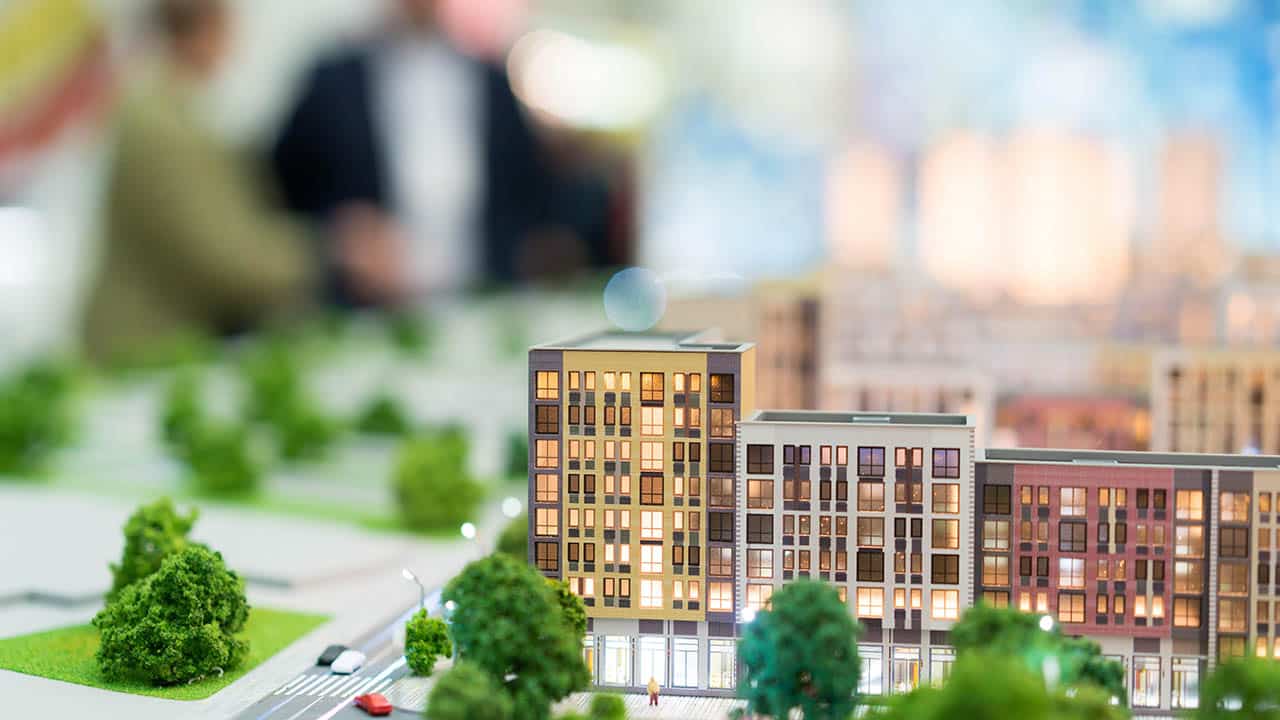In 2023, developers handed over the keys to 136.5 properties. This is 5.2% less than the previous year, and the decreases are not expected to end here. In the coming years, even fewer apartments will be made available for use. Therefore, it is important to urgently introduce solutions that will increase supply.
The Central Statistical Office published their report today (22.01.2024), “Residential construction in the period January – December 2023”. It shows that the number of apartments made available for use last year was a total of 220.4 thousand units, of which 62% were built by developers.
Cooperative, municipal or social-rented construction accounted for less than 2 percent of the entire production.
Forecast of apartments made available for use
The Polish Association of Development Companies estimates that the number of new apartments handed over to buyers will not exceed 117 thousand units in 2025.
-“In the next three years, Polish housing will feel the structural lack of supply of new investments, the effect of which will be handing over fewer apartments to buyers than it has been for the past few years. The supply recovery will be a long-term process, furthermore, very susceptible to economic and political factors. And it will largely depend on the actions taken by the government, whether developers will be able to efficiently launch new investments and introduce apartments for sale”- comments Patryk Kozierkiewicz, an expert from the Polish Association of Development Companies.
Building permits in 2023
In 2023, both the developer and individual sectors reported significant declines in the number of building permits obtained. Developers received permission to build over 40,000 fewer apartments than the previous year (a drop of 20%), indicating structural problems with land supply, and predicts future, even greater difficulties with delivering new apartments to the market. Fewer permits mean less chance of continuously supplementing the offer and starting new investments. Limiting the offer will undoubtedly lead to further increases in apartment prices. The unfavorable economic environment has caused a great stagnation in individual construction as well since so few building permits were issued for the last time almost 10 years ago.
Started constructions
Another discouraging data is that regarding newly-introduced investments. After a disastrous year for the industry in 2022, developers couldn’t break the negative trend and started building over 50,000 fewer units than in 2021.
The supply shortage would be even more significant if the S KNF recommendation on calculating creditworthiness had not been relaxed over the year, the Safe Credit 2% program was introduced, and the inflation rate stabilized relatively.
Undoubtedly, the biggest challenge facing the market and lawmakers is ensuring an adequate flow of new housing stock. The lack of a stable level of supply of new investments will be reflected in future real estate prices.
Key problems of the construction process
The Polish Association of Development Companies has prepared a document indicating the key problems of the construction process. The document contains ten key areas which, in the industry’s opinion, can unlock its potential and improve supply response.
One of these significant areas is unlocking land for housing construction, especially plots owned by Treasury companies and KZN, frozen under the Apartment Plus program. It’s also crucial to delay the implementation of key stages of the Act on planning and spatial development, giving local governments more time to prepare local plans.
The most pressing action and simultaneously the fastest to implement is the need to withdraw unfavorable changes in the so-called housing special law in terms of parking indicators. As part of the amendment of the regulations in May last year, exorbitant parking standards were introduced, requiring the construction of 1.5 parking spaces per apartment, regardless of the parking policy of a given commune. As a result, the regulations made investments made under the housing special law unprofitable, and the act, which could increase land supply and allow transforming degraded areas, became a dead letter. A quick amendment to the Act, worked on during the last parliamentary term and which did not raise doubts from any political side, would enable launching projects for several tens of thousands of apartments.
The construction law also requires changes, especially in terms of unjustified appeals from building permits. According to experts, the prolonged investment process is often the result of the need to consider complaints that have no relation to reality. Therefore, it would be appropriate to introduce a symbolic fee and adopt the principle of considering only those complaints that have a substantive justification.
The regulation on technical conditions also needs to be modified, including the amendment concerning playgrounds. One way to reverse the negative effects of the latest amendment is to abolish the obligation to locate a playground for investments in the range of single multi-family buildings and correct other minor assumptions.
